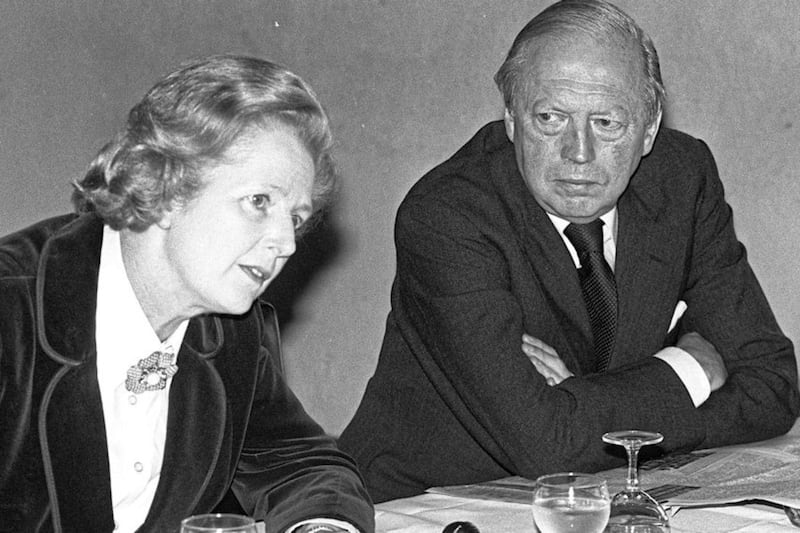ON March 30 1979 a mercury tilt-switch bomb exploded under Airey Neave's Vauxhall Cavalier as he drove out of the Palace of Westminster car park. The Tory MP, a close ally of then prime minister Margaret Thatcher, sustained serious injuries and died from his injuries a short time later at Westminster Hospital.
The bomb was a type that was relatively new technology and had only been used twice before. The INLA claimed the attack which was a major propaganda coup, striking right at the heart of the British establishment. It was a murder that no-one has ever been convicted of.
Military historian Patrick Bishop has spent three years researching Neave and told The Irish News that he discovered a man who has been shaped by his Second World War experience - and had a respect for powerful women, which was unusual in the politics of his era 40 years ago.
"When I was asked to write a biography of Airey Neave, it was an idea that appealed to me in many ways. I'd covered Northern Ireland as a correspondent during the Troubles and I'm a war historian so it spoke to me on all those levels", Mr Bishop said.
"I didn't know a lot about the man himself though, part of the project was getting to know him and revisiting that period.
"His story is interesting, he didn't have a very good war to start off with, he was captured during the Siege of Calais which was a British military disaster, his real war started after he escaped."
Following his escape from Colditz, using the codename 'Saturday' Neave was recruited as intelligence agent for MI9 (a department of the War Office between 1939 and 1945). As a qualified lawyer who spoke fluent German, he helped allied prisoners escape the occupied territories, working with female members of the French resistance.
The father-of-three was later decorated with the Military Cross.
"He worked with lot of women during that time and that was a formative experience, one of the women he worked, was known as Dedee, she was very resourceful and tough, brave and dedicated and he was so impressed by her that it shaped his view of women, I suppose you could say he was a bit of a feminist".
Following the war Neave served with the International Military Tribunal at the Nuremberg Trials. He was given the job of reading the indictments to the Nazi leaders on trial.
He later acted as a campaign manager for Margaret Thatcher. When she was elected Tory leader in 1975. He was rewarded by becoming head of her private office. He was tipped to become the secretary of state for Northern Ireland following the 1979 general election.
It was his political life and his stance toward Irish republicanism, that brought him to the attention of the INLA.
"His Ireland policy was hard-line", said Mr Bishop.
"He refused to see them (republicans) as anything other than gangsters and terrorists. His view was 'they've declared war and we should go after them'. Thatcher by contrast didn't really have a view on Ireland at all at that time."
On March 30 Mr Neave was to lose his life after an INLA bomb exploded under his car. the mercury tilt-switch bomb exploded as he drove out of the Palace of Westminster car park. He died from his wounds at Westminster Hospital and hour later without regaining conciousness, he was aged 63.
The bomb was a type that was relatively new technology and had only been used twice before. The INLA claimed the attack.
"The INLA claim they invented this bomb and it was their great contribution, but they never used it again," said Mr Bishop.
"Given they were a pretty shambolic outfit at the time, to get to Britain, transport the equipment, plant the bomb and then get way, it was always going to raise questions of collusion.
"They made maximum propaganda, hinting someone on the inside had given them assistance, although security was fairly primitive then.
"I think they planted it outside his flat and it was timed to go off when it did. They just got lucky with the timing.
"I did a lot of archive research, but after 40-years you still can't get into a lot of the Home Office or Metropolitan police files for national security reasons. But I don't believe the INLA had inside help, there is no evidence of that whatsoever.
"When writing the book I set out to be honest, there aspects that he wouldn't have been happy with I'm sure, I didn't lionise him, but it's an honest and fitting legacy," he said.
:: The Man Who Was Saturday: The Extraordinary Life of Airey Neave by Patrick Bishop is published by Harper Collins, priced £18.







